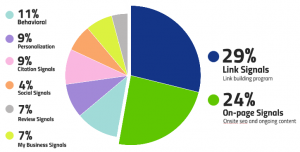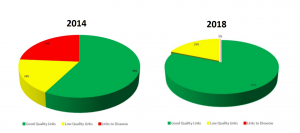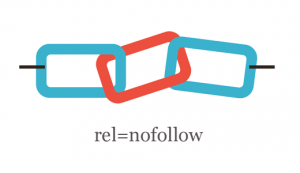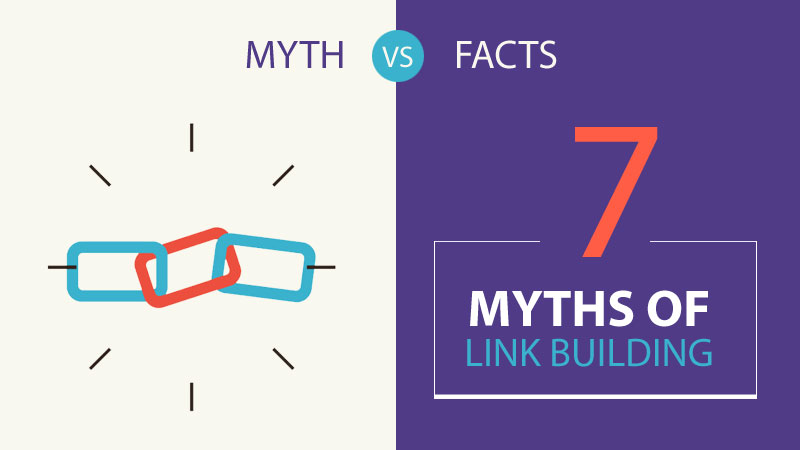Search engines and their ranking algorithms have always been a well-kept secret. Even today, we can only assume what factors a search engine analyzes to determine the rankings of a page or website.
However, there are certain ranking factors that search engines have confirmed to analyze and rank a URL. Of those, one of the most effective and popular ranking factors is link building.

Your 29% chance of acquiring good SERP ranks relies on your link building efforts. This figure compels marketers to build links proactively. However, they are only able to partly squeeze out the SEO juice from their link building efforts. The reason responsible for the inefficiency of your link building strategy is the myths about it.
These myths contain marketers from creating a significant link building strategy that can be utilized fully to grow their business. Therefore, in this post, I’ll debunk the most popular link building myths and create an eminent back-link strategy that can ensure your business’ growth.
Myth 1: Links are not necessary for better rankings
False. Links are essential for better rankings.
All your on-page efforts can get your site indexed and ranked, but they do not promise better rankings. You may target keywords with more than average search volume, but still, there’s a very low probability that your rankings will budge. If you want better rankings, you should invest in off-page marketing, so that Google often comes across your domain and determine its value. A majority of off-page marketing techniques are associated with link building.
When Google crawls the web for indexing, it visits and crawls every link it encounters. During the crawl, if Googlebot finds several quality links pointing to a domain, then they will consider your domain to be a valuable source of information for users. Therefore, the search engine decides to rank your domain higher in the SERPs.
However, remember to use only white-hat SEO link building techniques and stay away from using any black-hat SEO technique, like link buying, etc. because those can get you the Google penalty.
Myth 2: External links matter more than internal links
False. Both external and internal links serve different purposes.
There’s no comparison between external linking and internal linking, so one cannot pose the question as to whether one matters more than the other in terms of SEO. But I can confirm that both these types of links are necessary to boost a site’s SEO.
Importance of external links for SEO
Linking other websites in your content can help search engine crawlers to understand your niche quickly. Also, external links can act as a source of additional information for the users, and Google prefers ranking content that is valuable to the user. Apart from this, these links are an impressive way to build a professional relationship with other websites.
Importance of internal links for SEO
When search engine crawlers examine your content, they visit the domains hyperlinked in it. They visit the external links and the internal ones as well. With a robust internal linking structure, you can ensure that your entire website gets crawled, indexed, and ranked. Also, by linking your malnourished posts with your popular ones can help improve their traffic and engagement rate.
Myth 3: Links from domains that don’t fall under your niche are low-quality links
False. Not every link from unrelated niches to your domain is considered a low-quality link.

Getting links from niches different than yours does not make them low-quality links and Google will not penalize you for such links. However, if their numbers increase, then it will be frowned upon by Google.
Back-links help search engines determine a website’s niche, and too many irrelevant backlinks can confuse the crawler about your niche. This confusion can result in your falling SERP ranks. Also, if they are spam-my without an optimized anchor text, then it is considered a low-quality link.
Myth 4: Massive amounts of links to a single page is considered spam-my
False. You can have tons of links pointing to a single page as long as they are organic links.
Search engines do not penalize a web-page because they have too many links. However, they do analyze the quality of each associated link while indexing it. The crawlers will follow each link and examine the linking domain if they find out that the website is spam-my, then your web-page will receive the penalty.
However, if the opposite happens and crawlers learn that the linking domain is authentic and the linking is organic, then there’s nothing to worry. Your page will not get the penalty.
Myth 5: Pages with tons of back-links get ranked over the others
False. Back-links are not the only Google ranking factor.
There are over 200 Google Ranking Factors identified by search engine marketers, including page loading speed, mobile-first indexing, etc. Of these, a majority number received Google’s confirmation of being regarded as ranking factors.
Your page may have tons of links, but that is not the only factor that Google takes into consideration when ranking a URL. These links can help you rank better than websites that don’t have an authentic link profile. But you need to optimize your content and page for other factors as well if you want to acquire the top SERP position.
Myth 6: Do-follow links are more valuable than no-follow links
True. Do-follow links can have a positive impact on your rankings but…

Google recommends websites to have a combination of both do-follow and no-follow links to ensure the authenticity of the domain. If your site only has do-follow links, it can come out to be spam-my. Therefore, to best determine the authenticity signals, the website must have a mix of do-follow and no-follow links.
Also, several industry experts have shared their thoughts about the same: What links does Google care most about: Follow or no-follow?
Every expert agreed that websites should have a combination of both do-follow and no-follow links for better rankings and recommended the same, too.
Myth 7: Links from sites with exceptional DA improves your rankings
True. Links from higher DA websites can improve your rankings, but it depends on the circumstances.
The website with exceptional DA like Wikipedia can link to any URL they prefer, but that does not improve the rankings of the linked URL. For your URL to experience a boost in rankings, the link must be a do-follow link. Adding a do-follow link informs search engine crawlers that they are authorized to transfer Page-Rank and DA from the source domain to the linked one.
However, one link will not make much of a difference. If you really want better rankings, you must acquire more links from the higher DA website.
Myth 8: Guest posting is dead!
FALSE!
We were led to believe this in 2014 when Matt Cutts said: “Stick A Fork In It, Guest Blogging Is Done”. But it was clarified later on that his statement was directed at the spam-my guest blogging.
You will not receive Google’s penalty for following white hat guest blogging techniques to get links from top tier blogs. So, you should not be worried about it at all.
Conclusion
These myths had to be debunked. They were barriers on marketers which contained them to develop an effective link building strategy.
Since the 8 most popular myths have now been debunked, it is time to create an efficient link building strategy and ensure your brand’s growth.
If you still have any queries regarding any of the myths, let me know about them in the comments section below. Also, if you have some other myths about link building in mind, include them in your comments too.


